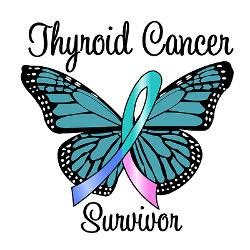| Dr. Miles' Anti-Pain Pills, Edmonds Historical Museum, Edmonds, Washington. (Photo credit: Wikipedia) |
Beginning opiates is not to be taken lightly.
It is not as simple as it all sounds. You will start a new medication that promises to alleviate some of your ongoing, daily pain. This class of medications can be fantastic in their ability to relieve pain, and can give a pain patient a glimpse of their 'old' life back.
But you first need to look at the entire picture.
After you have spoken with your physician about trying opiates, and of course you are both in agreement, take just part of an afternoon to think a few things over before running to the pharmacy.
CONSIDERING OPIATE THERAPY IN YOUR LIFE~~~
1. Do you have a history of alchohol or drug abuse?
2. Are you being treated (actively) for a diagnosis of Mental Illness?
3. Are you a compliant person?
4. Are you honest about your pain with your doctor?
5. Are you a very patient patient?
6. Are you willing to research and learn about these medications?
7. Are you willing to take on the side effects of opiate therapy?
8. Are you you wiling to stop opiates at any time if necessary?
9. Are you willing to stop opiates suddenly and abruptly?
10. Are you aware of the term Withdrawal Syndrome & what it means?
11. Are you willing to go through the withdrawal off of opiates?
12. Are you strong enough to deal with misinformation and misinformed comments? (Over and over)
13. Are you willing to fight for whatever helps YOUR pain? (Including non-opiate measures)
14. See #5.
I see a total person, a holistic view, in my patients. A person who has been addicted to any mind-altering substance that caused harm or distress to any part of his/her life, would not be a good candidate for opiate therapy, and hopefully the physician made that call when getting the patient's history.
An actively depressed patient would not be started on opiate therapy. (Possibly when the depression is treated, as pain can cause depression, and there are many pain patients with a co-morbidity of depression.)
A person with a history of lying about drug use, diverting medication if in the medical field, or anyone who looks at medication for pain as a commodity or a high only, is not the candidate for treatment with opiates.
Your doctor that treats your pain must be your partner in your pain care. Be honest and forthright. Docs appreciate candor, and also the educated patient. Read up on opiates and their side effects. Know what you are choosing to put in your body.
You must be prepared to possibly sign some sort of pain contract. You must be prepared to do what your doctor instructs you to do. (Compliance). You must be ready to take on the side effects of opiates, such as constipation (which can become very severe) nausea, tiredness, appetite changes, and others.
You may be asked to stop taking your pain medication. This is usually after a surgery, to evaluate how the pain is without any painkillers. In other words, "Did it work?"
You may decide to stay off of pain medication after the surgery if the outcome of said surgery is positive, the original pain is gone, and physically you can 'do' life, because the main cause of the pain has been 'fixed'.
You must be ready to accept whatever your body is going to do. For instance, I had a large second Thoracic spine surgery. After recovering and getting past the post-op pain, I stopped opiate use, and was pain-free for quite awhile. I went to the gym faithfully, it was like I felt years before. Nothing was needed for pain.
Then the pain started again. Slowly, slowly. But it was back, and new tests showed new pathologies in my spine. Because that was my 2nd Thoracic spine surgery, I chose (and was advised) not to have any more surgeries. I needed to treat my pain.
I was back in the ring again. All the holdups with filling medications is reason enough for some people to go all Micheal Douglas (Falling Down) on everyone. That is nothing. Nothing. You need to fight for your right to proper pain relief, in a reasonable amount of time, and that is not always easy to do. Seems like the system is against those that do have opiates as part of their therapy. Hard to see a doctor, hard to fill meds on time, hard to be patient while you are experiencing withdrawals (because you are dependent, not addicted) and still you must remain calm and deal with the situation at hand.
It is common to hear the word addicted used incorrectly with the subject of chronic pain patients and opiates. I have written extensively abut this subject before. (Addiction, Dependence and Tolerance Parts One and Two). You must be strong and ready to stand up for yourself, for who you are, what quality of life you want, and how you have chosen to treat your pain.
Above all, you must be patient.
Gentle Hugs......

